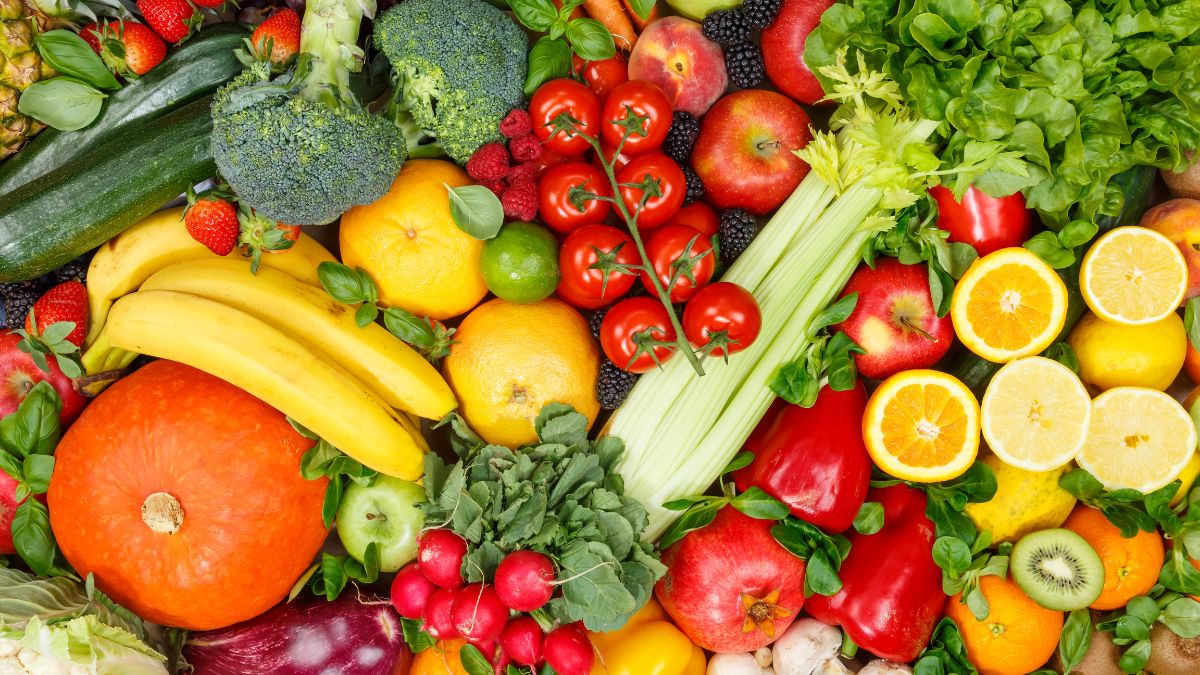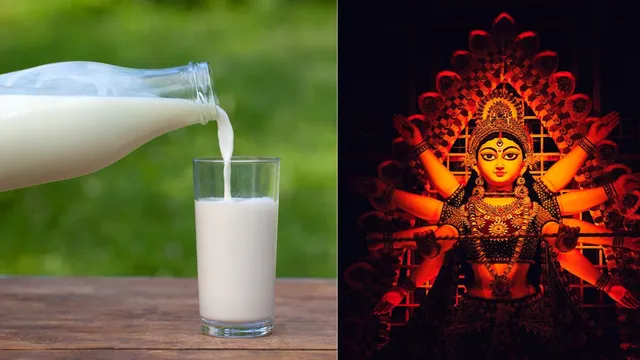- By Bornika Das
- Sat, 20 Sep 2025 11:12 AM (IST)
- Source:JND
Sharadiya Navratri Fasting Foods: Sharadiya Navratri 2025 is around the corner, bringing along the vibrant spirit of Dandiya nights and Garba nights. The nine-day Navratri will commence from September 22nd and will conclude on October 2. This is one of the sacred Hindu festivals that worship Maa Durga and honour the triumph of Devi over the demon Mahishasur, symbolising the victory of good over evil. The period is all about rituals, prayers and traditional fasting. It is all about purifying the body and soul, keeping a balance between dedication, cleanliness and self-restraint. For these nine days, devotees consume fruits as part of a special diet which is based on Vrat-friendly foods.
Fasting during Navratri does not mean compromising on health and nutrition. With the right choice of ingredients, devotees tend to consume nourishing sattvic food that maintains their energy levels throughout the day, while following traditional rules of fasting. Here’s the Sharadiya Navratri 2025 fasting guide of foods to eat and avoid during these nine days of devotion.
The Do’s Of Navratri Fasting
Dairy Products
While fasting, it is essential to maintain energy and hydration levels. Dairy products like yoghurt, milk, paneer and lassi are loaded with protein and essential vitamins and minerals. Meethi lassi is great for digestion, which helps to restore energy levels throughout the day.
Rock Salt Instead Of Table Salt
Refined salt is usually avoided during Navratri as it is considered impure. Instead, rock salt and Sendhanamak are consumed as they are considered pure and less processed. This also helps in maintaining the electrolyte balance during fasting.
ALSO READ: Navratri 2025 Fasting: 9 Super Nutritious Foods To Keep You Energised All 9 Days
Sattvic Diet
Devotees only consume pure sattvic food. Incorporate foods in the diet that are free from any tamasic ingredients, unprocessed and fresh. Sattvic foods include rajgira, kuttu, sama rice and sabudana. These foods are nutritious and easy to digest.
Fresh Veggies And Fruits
Fresh fruits and veggies are considered a must during Navratri. They not only provide minerals and vitamins, but also fibre to the body. Veggies like spinach, potatoes, pumpkin and bottle gourd are commonly consumed during the period. For fruits, you can add bananas, pomegranates, apples and papayas to the food menu. These also help to maintain the nutritional balance and support.
Avoid Non-Vegetarian And Tamasic Foods
One of the principles of fasting during Navratri is to avoid tamasic foods that are considered heavy or impure. Tamasic foods include garlic, onions and non-vegetarian dishes. These foods are said to affect mental clarity and maintain spiritual focus as well.

Sharadiya Navratri Fasting Do's And Don'ts (Image Credits: Canva)
Don’t Of Navratri Fasting
Avoid Aerated Drinks And Alcohol
It is important to avoid sugary drinks, alcoholic beverages and fizzy sodas during Navratri. These drinks are not only unhealthy but also disrupt the natural cleansing process. Devotees should stick to fresh fruit juices, coconut water, herbal teas or just plain water for hydration.
Avoid Legumes And Lentils
Although the lentils and legumes are considered rich in protein, they are not allowed during Navratri fasting as they are heavy and tamasic in nature. Replace them with fruits, veggies and dairy products.
Say No To Processed Foods
Although you might be tempted to eat processed foods and packaged snacks, it is considered important to avoid these items during Navratri. Foods like packaged sweets, chips or anything that contains preservatives and refined sugar are best left off the menu. They disrupt your digestive system and go against the purity of fasting.
Avoid Junk Food
Avoid items like burgers, pizzas, fries and anything fried in regular oils. These are fast food snacks which make people sluggish. Opt for vrat-friendly foods like sabudanavada, singhareke pakora, kuttu ki poori and more to satiate the hunger pangs.
ALSO READ: Easy Sabudana Tikki Recipe: How To Make Sabudana Tikki At Home For Navratri Fast 2025?
No Flours Or Regular Grains
The regular grains like wheat, rice and maida are strictly prohibited during the Navratri period. Instead, you should use alternatives like kuttu ka atta (buckwheat flour), rajgira atta (amaranth flour), and singhara atta (chestnut flour) to prepare rotis, puris or khichdi. These alternatives are lighter on the stomach and easy to digest, too.

